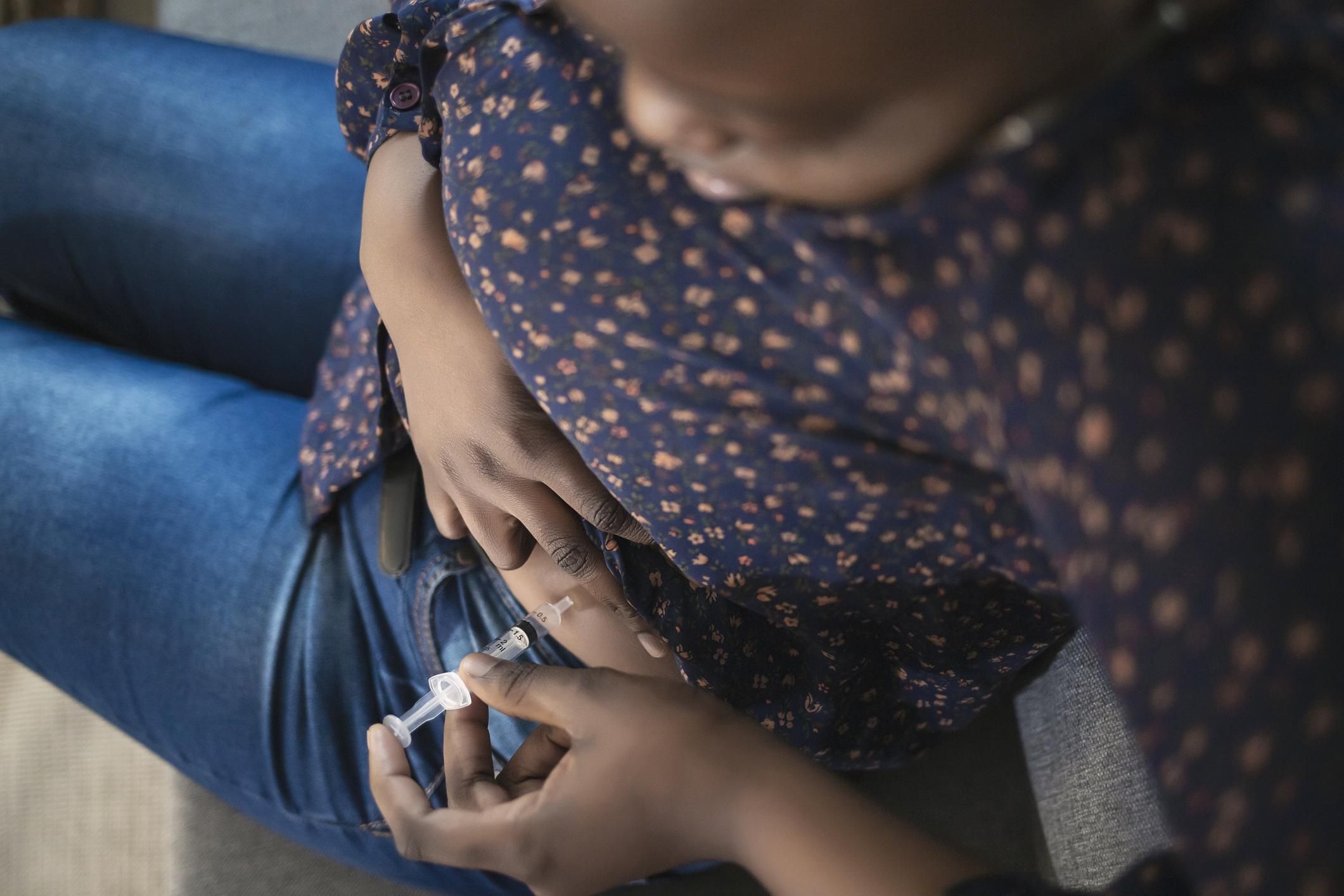April 24-30 is National Infertility Awareness Week.
Michelle Anderson and her husband Jeff* were ready to start their family when Michelle turned 33. She stopped taking birth control pills and wasn’t surprised when she didn’t get pregnant right away. But, then six months passed, and then 12. After two years and 24 negative pregnancy tests, Michelle consulted her OB-GYN, who suggested fertility treatments. Michelle resisted. “I’m a spiritual person,” she said. “I always thought if it was meant to happen, it would happen.”
The following year resulted in 12 more negative pregnancy tests and a growing sense of exhaustion and stress in and out of the bedroom. Michelle steeled herself for baby showers and fended off questions such as, “When are you going to have a baby?” Michelle would smile and think, “As if it worked that way. As if my body wasn’t failing at the one thing it was built to do.”
But for roughly 1 in 6 couples, it doesn’t work that way. And according to Sheryl Kingsberg, Ph.D., psychologist and chief of the OB-GYN Department’s Division of Behavioral Medicine at University Hospitals Cleveland Medical Center, that rate is even higher in couples over the age of 35.
“There are many different causes of infertility,” said Kingsberg. “For women, infertility can relate to the quality or quantity of eggs, or to structural or hormonal reasons. There are often no outward signs of these issues. Sometimes there can be overlap, with multiple reasons found within the same couple. That’s why an infertility evaluation is so important: It’s so much more complex than buying an ovulation predictor kit from the store. Timing is rarely the primary issue.”
Treatment options can involve medication or surgeries, Kingsberg said. “The most common fertility treatments are intrauterine insemination (IUI) and in vitro fertilization (IVF). IUI involves a medical procedure that delivers sperm directly into the uterus during ovulation.
“IVF entails several weeks of injection medications to stimulate the egg growth in the ovaries and involves frequent ultrasounds and blood tests,” said Kingsberg. “This is followed by an outpatient procedure called egg retrieval, fertilization of the egg by sperm and embryo transfer of one of the embryos back into the uterus. It can often take a month to prepare for IVF and a month or so to complete.”

Michelle’s job offered insurance that partially covered fertility treatments. They started with two rounds of IUI, but both failed. So, they switched to IVF.
“It takes over your life,” Michelle said. “There are so many moving parts.”
Michelle had Jeff administer her daily hormone injections. “They stung so badly,” she said. “Not just physically, but emotionally.” Michelle told Jeff he had to tell her a new joke every day during the injection. She remembers sobbing some days, telling her husband, “It wasn’t funny enough.”
The first IVF round failed. Insurance would cover just one more round. After that, Michelle said, she and her husband agreed they were finished. Physically, emotionally, spiritually and monetarily, they were spent. If this failed, they would pursue adoption. But with its high costs and long waiting lists, a baby seemed no nearer via that route either.
Throughout treatment, Michelle received no emotional support or resources from her fertility treatment center. “It was unbelievably stressful, body and soul. They didn’t even give me advice on how to deal with the side effects I was experiencing,” Michelle said. “I was told stress played a part in infertility, and I thought, If that’s true, why don’t you offer any support?”
Above all, Michelle said, “I was so isolated. I didn’t want to burden my family or make them worry. I couldn’t handle their emotions on top of mine.” Michelle also found it difficult to confide in friends who were making their own family plans. Her husband was suffering too, and she didn’t want to put additional pressure on him because she knew several couples whose marriage had been strained by infertility. Toward the end of her second round of IVF, she recognized the magnitude of her distress was beyond her ability to handle alone. “I was grasping at straws,” Michelle said. “Based on what I could pull together from ‘Dr. Google,’ I found a therapist, then an acupuncturist: I had to find my own support team.”
Erika Kelley, a clinical psychologist at University Hospitals Cleveland Medical Center, said infertility patients are encouraged to meet with a psychologist as part of treatment at their clinic. “There are higher rates of mental health issues among women seeking infertility treatment. We see a lot of depression and anxiety,” Kelley said.
There are a lot of difficult feelings during treatment as well. “It’s normal to experience a tremendous sense of loss and grief, anger, anxiety, sadness and frustration,” Kelley said. “Patients say, My body is failing me. There’s a loss of control. I’ve heard patients describe how the process can medicalize intimacy.”

It’s normal to worry about strains on the marriage when treatment doesn’t produce a pregnancy, according to Kelley. She said it’s common for partners to disagree on when enough is enough. Kelley refrains from telling couples whether or when to quit fertility treatment. Instead, she encourages couples to make decisions based on their values. She said if the signs of depression or post-traumatic stress disorder (PTSD) appear, she encourages couples to pause treatment to focus on their emotional health. And, she recommended that anyone who is struggling to manage the difficult feelings brought on by infertility and its treatment seek professional mental health services.
“PTSD can happen with infertility, especially if there’s been a past history of trauma exposure, or a history of pregnancy loss,” Kelley said. “Signs and symptoms include re-experiencing thoughts, images or dreams of the traumatic event; anxiety and fear triggered by reminders of the trauma; alterations in how you think or feel; hyperarousal; or numbness and difficulty concentrating.”
PTSD is not the same as trauma exposure, Kelley said. “It can be a response to trauma exposure. If treatment is prolonged, and [patients are] having a hard time thinking of anything other than treatment, I suggest taking time off. Research shows it can be restorative to the body and mind.”
Another couple, Gina and Leo Sorren,* underwent two unsuccessful rounds of IUI. IUI cost $5,000 per round for them, and IVF would have cost them $20,000 per round. “The thought of spending that much money on something that might not work was crushing,” Gina said. “It was sad and disappointing,” she said, but they elected not to try IVF.
Today Gina and her husband cultivate strong relationships with her niece and nephew. “My role with them is a huge deal. It means a lot,” Gina said. “[Not having children was] definitely was a loss, but life is still good. There's still so much you can contribute."
Kelley recommends support groups. “Infertility can be isolating. Attempts at social support often fall short when people don’t understand. She said she sees a lack of social support frequently with secondary infertility, which occurs after a woman has had a child and has trouble conceiving another. “Women are told, Just be happy you have one. Talking with someone who really understands can help.”
Kelley said friends and family members can offer support by listening and providing emotional validation, such as just noting that the situation sounds really stressful “If you don’t know how to offer support, you can always ask them,” said Kelley.
Michelle and her husband learned she was pregnant after the second round of IVF. Instead of feeling victorious, Michelle remembers feeling numb by the news. “By then I’d lost all trust in my body. Everything had gone so wrong for so long I just assumed my body wasn’t up for pregnancy. I felt like I’d gone through hell just to trick my body into doing this, and there was no way it would stick.”
Michelle said the chronic stress of infertility impacted her pregnancy and even her postpartum period. “I went into motherhood carrying the trauma of infertility. With the stress and the lack of sleep, there was nowhere to put it,” Michelle said.
Thirteen years later, Michelle said the shadow of their IVF experience still falls over her family. “I never considered doing IVF again,” she said. “Sometimes I regret that. I have guilt, and then I feel like I’m forgetting to be grateful that we were a success story. I grew up believing that you find the right person, you wait, you get married and have kids. We were a success story, but there was so much grief throughout that entire process. The joy of pregnancy was stolen. It just disappeared into this storm of hormonal fluctuation and anxiety.”
Michelle never told her parents she went through IVF. “I wanted them to have the joy that Jeff and I didn’t have. I just wanted to preserve one piece of normalcy for them, even if we couldn’t have it.”
*Names have been changed for privacy.
- Finally Pregnant! This is Our Story of Living With Unexplained Infertility ›
- My Long Journey to Queer Motherhood - HealthyWomen ›
- Infertility - HealthyWomen ›
- Infertility Killed My Sex Life - HealthyWomen ›
- Infertility and Your Relationship - HealthyWomen ›
- Infertility Treatment Options - HealthyWomen ›
- My Infertility Journey Led to an Unexpected Discovery - HealthyWomen ›
- What I Learned About Infertility While Trying to Conceive - HealthyWomen ›







